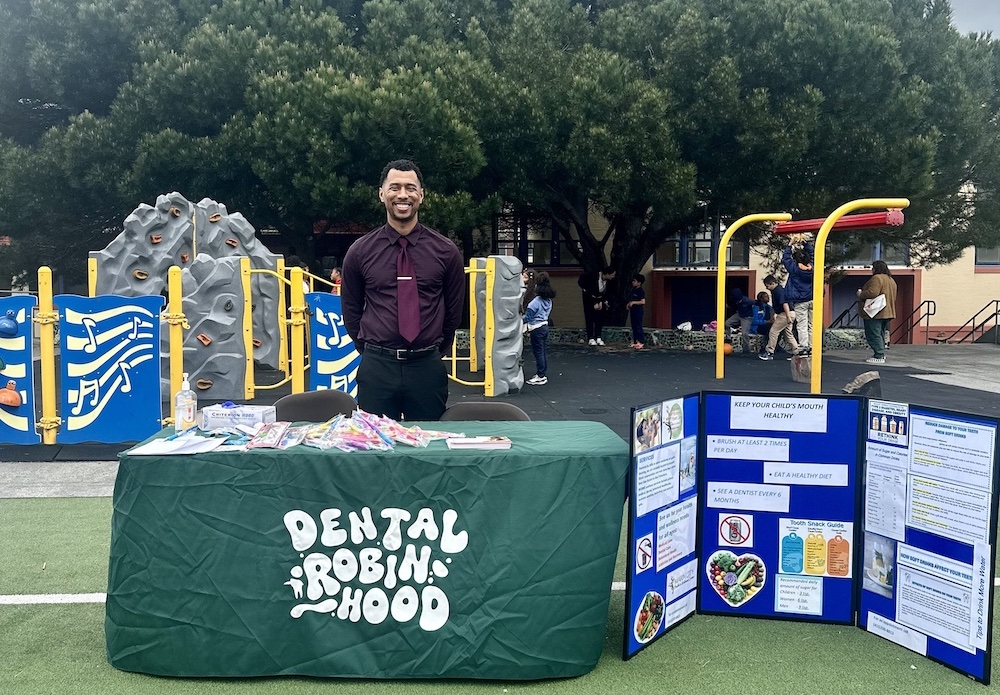New dentists serve underserved at federally qualified health centers

As a fourth-generation resident of the Bayview Hunters Point community in San Francisco, Rubin Sorrell II, D.D.S., always knew he wanted to give back to his community in some way. Exactly how, though, was more of a question mark.
“My family just wanted me to do something. The bar was set low due to despair and violence and everything that comes along with being in a socioeconomically disadvantaged community. I knew I wanted to help people,” Dr. Sorrell said of his childhood community, which includes many residents who live below the federal poverty level.
When he was in 10th grade, Dr. Sorrell attended a Black Student Union meeting where faculty from the University of California San Francisco spoke about the dental profession. That one occurrence guided Dr. Sorrell’s career trajectory, and he graduated from the University of California San Francisco School of Dentistry in 2021.
Today, he serves his childhood community at the Bayview Health and Wellness Center, a federally qualified health center that offers primary medical, dental, behavioral and maternal health care “with the goal of African American health equity.”
FQHCs are federally funded nonprofit health centers that serve medically underserved areas and populations. Services are provided on a sliding scale fee based on the patient’s ability to pay. Many dental professionals who work at FQHCs have the option to receive student loan repayment for serving in an area with limited access to care.
Dr. Sorrell said working at an FQHC does come with some obstacles.
“The No. 1 and the constant and the always and more than anything [challenge] — over the technical dentistry, over billing — is trust. For me, it always begins with trust,” he said.
Because many of his patients have experienced past trauma, Dr. Sorrell places a high emphasis on taking his time. This involves not even touching the patient on most first visits so as to create a sense of comfort and establish trust.
Additionally, once he does begin dental services, Dr. Sorrell aims to maintain the trust by describing every step to the patient to bring them into the process.
“I’m explaining in dental terms and in layman terms. ‘Hey, I’m starting and stopping this cavity. Hey, I’m etching — it’s like my tooth shampoo. Hey, I’m using bond — it’s like my tooth glue. Hey, I’m polishing – it’s to make it smooth. It’s meeting the patient where they’re at,” he said. “I’m always making sure I’m taking that challenge of trust head-on and everything else goes smoothly.”
But there are many rewards, too. Kathy Trinh, D.M.D., works at Wallace Medical Concern in Portland, Oregon, which is an FQHC that she said offers many restorative and preventive services, as well as some noncovered procedures — like crowns or bridges — at a highly discounted rate.
Dr. Trinh, a 2019 graduate of the Oregon Health & Science University School of Dentistry, said providing a dental home to patients who have historically not received routine dental care has proved very rewarding.
“It’s the simple things, like being able to see your patients [because] they’re just very appreciative of us for taking time for them,” she said.
Both Drs. Sorrell and Trinh said that dentists who are considering working in an underserved area should know that while the work can be difficult at times, it’s deeply gratifying to know their knowledge and skills are making an impact and they’re doing their part to give back.
Dr. Trinh has seen many state-insured patients in her dental career, which reminds her of her own time in dental school on state insurance.
“I saw the benefit [it] provided me as patient in terms of routine care and preventive service. And then learning more as a dentist, I also saw the restrictions it had on this population. Knowing what I know now, I feel like it’s my turn to pay it forward and use my dental knowledge to help underserved communities,” she said.
Dr. Sorrell echoed this sentiment, expressing hope the next generation of dentists feels similarly.
“[I’m] just doing my part. I hope that we have that next generation of people that are coming up to do the same and pay it forward and come from places I come from and give back,” he said.



